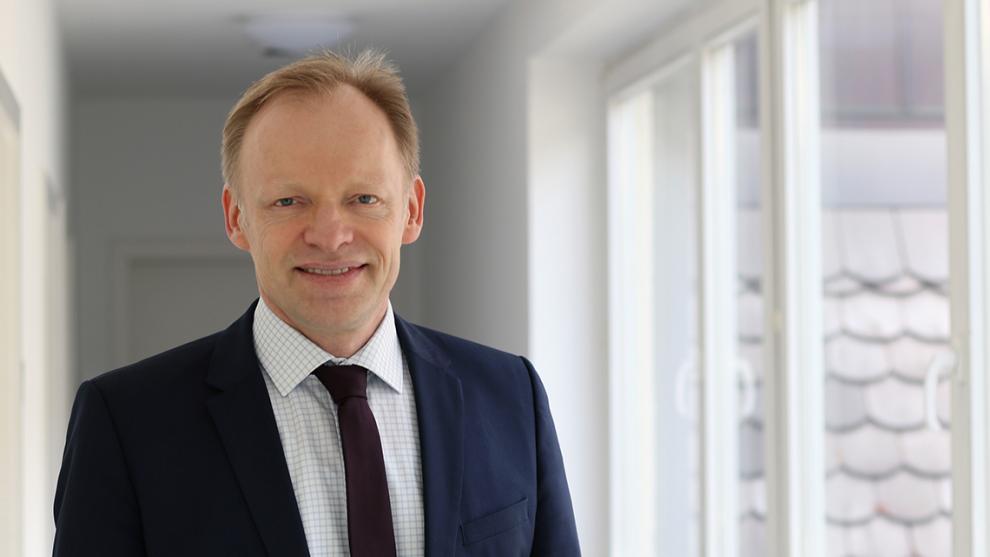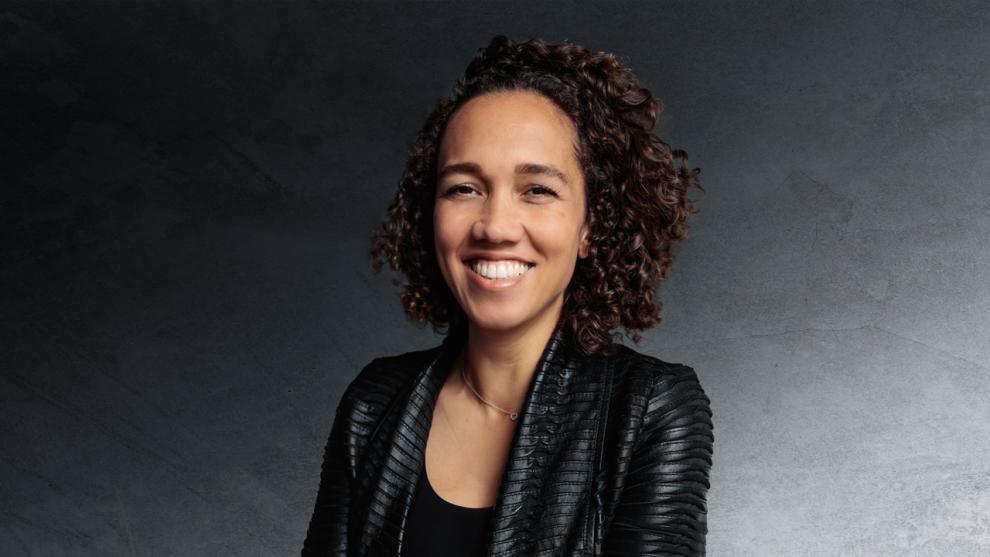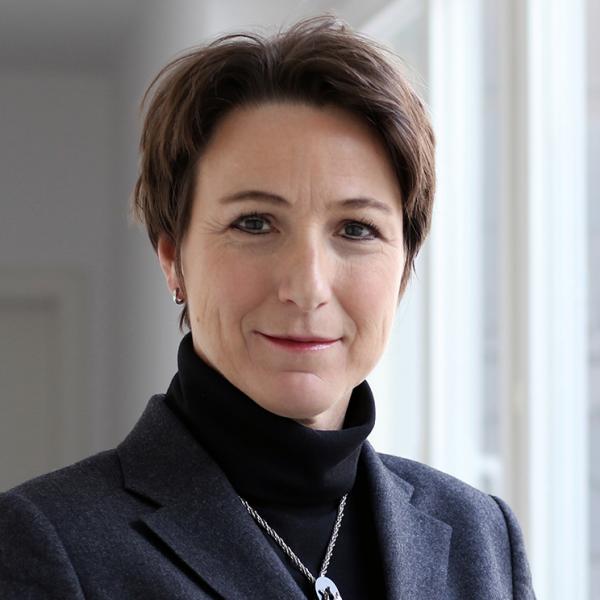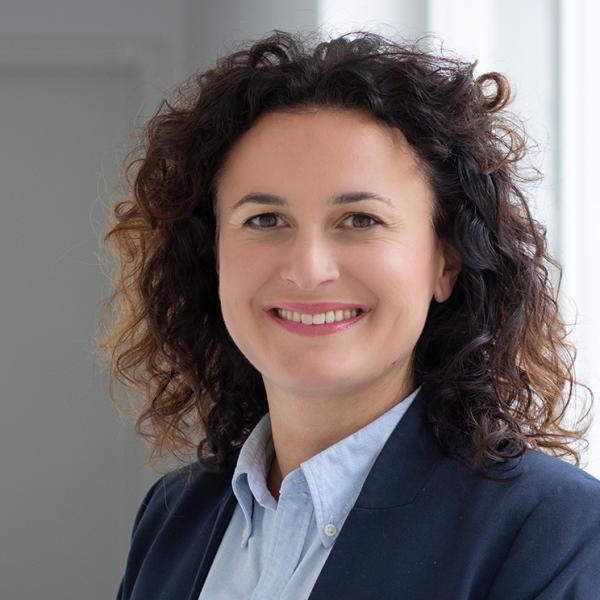ifo Media Center
The ifo Institute invites you to participate in the discussion of interesting economic topics via the Internet. In our ifo Media Center a whole series of remarkable events are available and can be viewed in full length. We also record selected speeches and presentations given by employees or at events and make them available in our Media Center.

Ludwig Erhard ifo Center for Social Market Economy and Institutional Economics
The social market economy is a widely recognized economic and social model. It stands for the combination of economic efficiency with social balance and is therefore considered a model of success beyond Germany. The Ludwig Erhard ifo Center for Social Market Economy and Institutional Economics investigates how markets and government action should be designed to meet new challenges. Those challenges include demographic change, digitalization, climate change, and economic inequality. The key questions are: How can as many people as possible take advantage of the opportunities offered by a market economy? What influences people’s attitudes regarding the economic system and economic policies? How should incentives in science and economic policy advice be designed to improve the basis for decisions made by governmental and economic institutions?
Executive Board
The Executive Board runs the Institute’s business and is responsible for strategic planning and research management. Its members are appointed by the Administrative Council, and contract renewal is allowed.
Human Resources and Law
The Human Resources and Law department is the first point of contact for people interested in a career at the ifo Institute. We see ourselves as a service provider and partner for external and internal candidates alike. It’s our job to recruit the best personnel for ifo. We support them throughout their employment with us and advise them on career options both within and outside the Institute.
Finances and Centralized Services
Tasks of the Finance and Centralized Services department (FI) include finance, accounting, printing, dispatch, and facilities management with all janitorial activities. We see ourselves as internal service providers, assisting our customers with expert advice and support on all issues concerning the above-mentioned areas.
Information Technology
The employees in the ifo Institute’s IT department provide all ifo users with state-of-the-art IT infrastructure and innovative IT services. This enables the scientific and non-scientific areas to carry out their work efficiently and with a high degree of professionalism. In turn, we enjoy the appreciation of the users we support. We are a team that brings together a myriad of skill sets, and we tailor this expertise to each and every one of our projects.
Communications
The Communications Department is responsible for relations with the ifo Institute’s stakeholders. We see ourselves as mediators between the institute, interested journalists, members, companies, public authorities, and students. Our employees create the content for the ifo website, manage our social media channels, maintain contact with our multipliers, produce the Institute’s publications, and organize events.
ifo Center for Public Finance and Political Economy
How are financial and fiscal policy instruments that are in use in Germany, the European Union and internationally to be evaluated? How do policy makers and institutions influence economic policy and its outcomes, e.g. economic growth? The Centre for Public Finance and Political Economy deals with these topics and derives policy recommendations from them. The motives for action of political decision-makers are examined in particular from the point of view of the public choice approach.
ifo Center for the Economics of Education
How do changes in the level of education come about and how do they affect economic development? The Center for Educational Economics researches these questions. Contributions and policy recommendations are developed on the basis of scientific findings. They are intended to contribute to enabling people to participate more strongly in the opportunities offered by an open society, to survive in international competition and to exploit their opportunities for greater prosperity.
ifo Center for International Institutional Comparisons and Migration Research
What influence do institutions have on economic development? Institutions are of great importance for the long-term economic growth of an economy and equal opportunities. The ifo Center for International Institutional Comparison and Migration Research addresses various societal challenges by analyzing the causes and economic impacts of institutions, with a particular focus on migration, financial intermediation, and the interaction of institutions with be-liefs and preferences.
Research Group Taxation and Fiscal Policy
How can governments manage taxes, public spending and public debt efficiently and fairly? This question is investigated by the Research Group Taxation and Fiscal Policy headed by Florian Neumeier. The aim is to develop research-led policy recommendations on current and fundamental questions of taxation and fiscal policy at local, national and international level.
ifo Center for Industrial Organization and New Technologies
Which factors influence competitiveness and innovation? How do technology transformations affect society? The Center for Industrial Organization and New Technologiesinvestigates these fields with the help of empirical methods of counterfactual impact analysis. The aim is to derive policy measures from these findings that enable companies and individuals to benefit more from progress in a social market economy.
LMU-ifo Economics & Business Data Center
Big Data Economics enables better research and policy advice, but places heavy demands on the research infrastructure. The LMU-ifo Economics & Business Data Center (EBDC) as an accredited research data center and central research-oriented cross-sectional unit develops and maintains this infrastructure for all ifo Centers, their research partners, and visiting researchers. The EBDC team actively lends its expertise to these research projects, provides and further develops the ifo research datasets, coordinates training courses in data science, and offers advice on research data management.
ifo Dresden
The Dresden branch, founded by the ifo Institute in 1993, conducts empirical economic research that focusses to the special concerns of the East German federal states and, in particular, the Free State of Saxony. Most of the contributions of ifo Dresden is policy-driven, which means that it intends to provide policymakers with propositions for focused action. For example, ifo Dresden examines how structural change can be supported in a specific and socially acceptable manner, which factors influence economic developments specifically in the Free State of Saxony, and how current and future fiscal policy challenges can be responded to. The effects of demographic change are also considered as a cross-sectoral theme. Many of the research findings can be applied to other structurally underdeveloped regions in Germany.
ifo Center for International Economics
Which political measures are effective in a globalised world? This is what the Centre for Foreign Trade deals with. Markets today have a global orientation, while political control mechanisms are mostly designed at the national level. The Centre examines the global interplay of political design initiatives. On the basis of its findings, it develops recommendations on how national institutions can exploit the dynamics of globalisation and mitigate the effects of disruptive changes.
ifo Center for Energy, Climate, and Resources
How can economic development be shaped sustainably? The Center for Energy, Climate, and Resources is investigating this question. In particular, it investigates the effectiveness of climate protection measures worldwide and regionally, including the change from fossil energy systems to alternative energy sources. In addition, it deals with the political, economic and social challenges arising from the use of natural resources.
ifo Center for Labor and Demographic Economics
What are the economic consequences of changes in the labour market and the population? This is the focus of the ifo Centre for Labour Market and Popu-lation Economics. With the help of theoretical analyses, modern econometrics and on the basis of specific data sources, it approaches previously unresolved questions. The aim is to inform politicians and the public about the cause-and-effect relationships underlying the most pressing social problems of our time.
ifo Center for Macroeconomics and Surveys
The research conducted by the ifo Center for Macroeconomics and Surveys focuses on economic policy analyses, macroeconomic research and inequality and redistribution.



